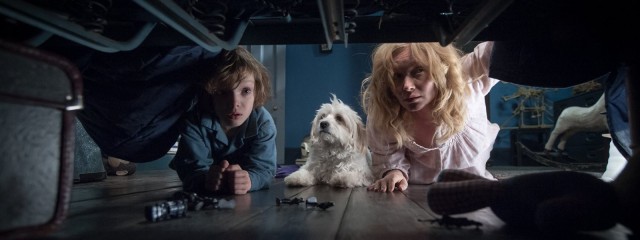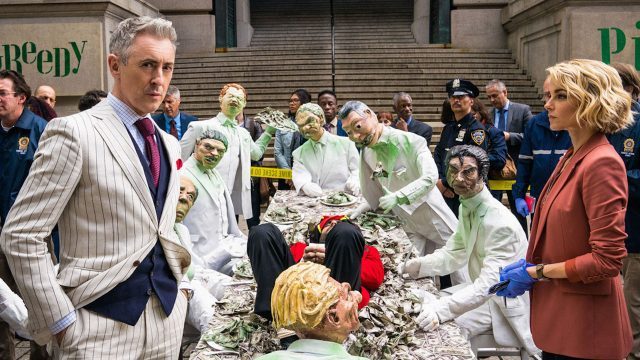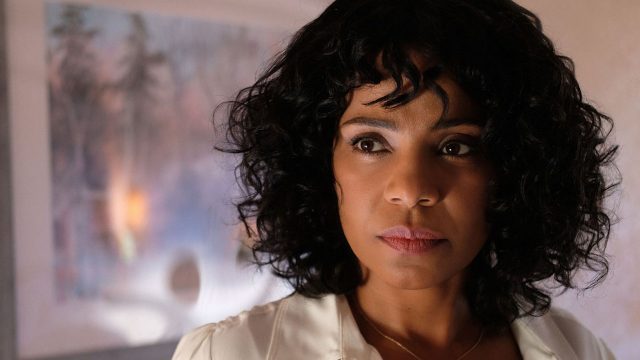
How the 1941 Odessa massacre has been remembered is the central focus of Radu Jude’s “I Do Not Care If We Go Down in History as Barbarians”
“I DO NOT CARE IF WE GO DOWN IN HISTORY AS BARBARIANS” (ÎMI ESTE INDIFERENT DACĂ ÎN ISTORIE VOM INTRA CA BARBARI) (Radu Jude, 2018)
IFC Center
323 Sixth Ave. at West Third St.
Opens Friday, July 19
212-924-7771
www.ifccenter.com
bigworldpictures.org
 Romanian writer-director Radu Jude follows up his 2017 documentary, The Dead Nation, with “I Do Not Care If We Go Down in History as Barbarians,” a bold, provocative fiction film with nonfiction elements that explores continuing anti-Semitism and bigotry in Romania, Eastern Europe, and the world. The title is taken from a statement made by Romanian military dictator Marshal Ion Antonescu to the Council of Ministers in the summer of 1941, just a few months before the Odessa massacre in which tens of thousands of Jews were killed by Romanian troops. The film is set in contemporary times, as theater director Mariana Marin (Ioana Iacob) is preparing for a live, one-time-only massacre reenactment in the town square. Marin is determined to show what really happened during those days, complete with brutal murders and hangings, but Constantin Movilă (theater director Alexandru Dabija), her connection with the local government, insists that she leave out the gruesome parts, that the show should be a celebration of Romanian heroes. She argues that it would not be fair to the nearly four hundred thousand Jews that were ethnically cleansed by the Romanian military, but he quibbles over what’s true and what the community wants to see. As the show approaches, Movilă threatens to cancel it while numerous actors complain about the negative aspects being depicted, displaying affection for “Uncle Hitler” and a lack of empathy for the exterminated Jews.
Romanian writer-director Radu Jude follows up his 2017 documentary, The Dead Nation, with “I Do Not Care If We Go Down in History as Barbarians,” a bold, provocative fiction film with nonfiction elements that explores continuing anti-Semitism and bigotry in Romania, Eastern Europe, and the world. The title is taken from a statement made by Romanian military dictator Marshal Ion Antonescu to the Council of Ministers in the summer of 1941, just a few months before the Odessa massacre in which tens of thousands of Jews were killed by Romanian troops. The film is set in contemporary times, as theater director Mariana Marin (Ioana Iacob) is preparing for a live, one-time-only massacre reenactment in the town square. Marin is determined to show what really happened during those days, complete with brutal murders and hangings, but Constantin Movilă (theater director Alexandru Dabija), her connection with the local government, insists that she leave out the gruesome parts, that the show should be a celebration of Romanian heroes. She argues that it would not be fair to the nearly four hundred thousand Jews that were ethnically cleansed by the Romanian military, but he quibbles over what’s true and what the community wants to see. As the show approaches, Movilă threatens to cancel it while numerous actors complain about the negative aspects being depicted, displaying affection for “Uncle Hitler” and a lack of empathy for the exterminated Jews.
“I Do Not Care If We Go Down in History as Barbarians” is like a post-Nouvelle Vague film, echoing elements of French cinema from Jean-Luc Godard and Jacques Rivette to Olivier Assayas and Arnaud Desplechin, with debates of texts by Isaac Babel, Ludwig Wittgenstein, Joseph Goebbels, Nicolae Steinhardt, and others. But instead of becoming pedantic, the discussions serve to enlighten the arguments and define such characters as Movilă and, in particular, Marin, who not accidentally shares the same name with a Romanian poet who wrote, “Serene and bitter, I hurry across my native land / As if tomorrow had already been.” The entire film is seen from Marin’s determined point of view, whether she’s reading in bed with her lover, Ștefan (Șerban Pavlu), getting support from her lead actor, Traian (Alex Bogdan), and right-hand assistant, Oltea (Ilinca Manolache), or smoking and drinking in a bubbles-free bath. She’s mad at the state of the world and disgusted that people don’t want to know the truth of their history; she’s like the tank she insists she must have for the production — and like the tank, which has to stand still, Marin refuses to budge, understanding the difference between compromise and censorship.
In her first leading role, Iacob is mesmerizing throughout the film’s 140 minutes, giving a tour-de-force performance that lays it all out there as she portrays a bold and brash woman who won’t back down from her personal and professional desires; she’s so immersed in the part that at times you’ll think you’re watching a documentary, enhanced by cinematographer Marius Panduru’s wandering, unpredictable camera. Jude (Scarred Hearts, Aferim!) tackles such critical issues as governmental whitewashing of history, the public’s selective memory, and the definition of patriotism itself, a debate raging across America under the current administration as well as in other nations. Whether Marin gets to stage the show or not ends up being besides the point as the people around her reveal their biases and hatreds, something a play is not about to change. “I Do Not Care If We Go Down in History as Barbarians” is a necessary film, but it’s also a frightening one.
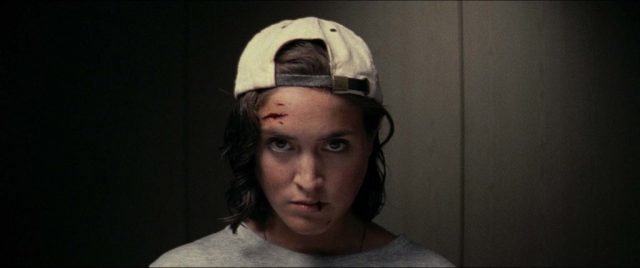
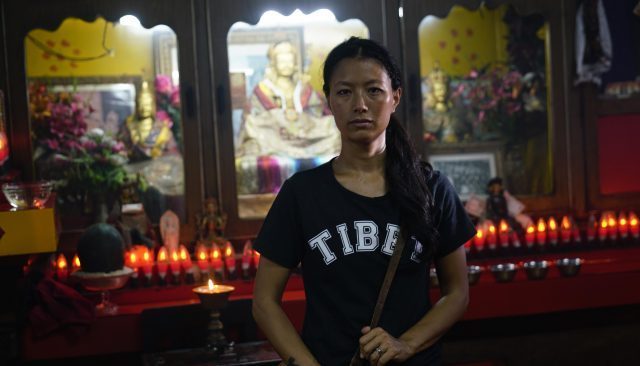
 The immigration and refugee crisis is at the heart of husband-and-wife filmmaking team Tenzing Sonam and Ritu Sarin’s The Sweet Requiem, opening July 12 at IFC. Unfortunately, the film gets bogged down in its agenda-driven narrative. Writer-director Sonam and producer-director Sarin, who were both born in India — Sonam’s parents were Tibetan refugees — have been outspoken regarding the treatment of Tibetans by the Chinese government, as depicted in such earlier works as 2007’s fictional
The immigration and refugee crisis is at the heart of husband-and-wife filmmaking team Tenzing Sonam and Ritu Sarin’s The Sweet Requiem, opening July 12 at IFC. Unfortunately, the film gets bogged down in its agenda-driven narrative. Writer-director Sonam and producer-director Sarin, who were both born in India — Sonam’s parents were Tibetan refugees — have been outspoken regarding the treatment of Tibetans by the Chinese government, as depicted in such earlier works as 2007’s fictional 
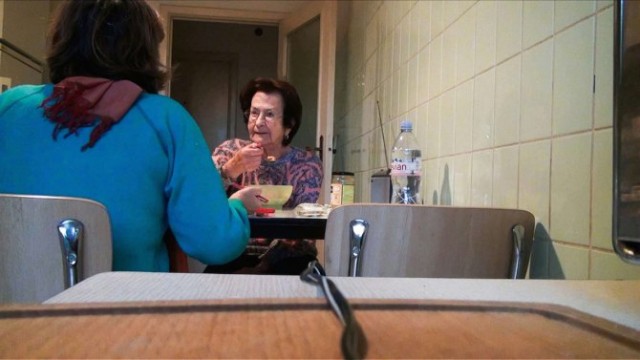
 Chantal Akerman’s No Home Movie was meant to be a kind of public eulogy for her beloved mother, Natalia (Nelly) Akerman, who died in 2014 at the age of eighty-six, shortly after Chantal had completed shooting forty hours of material with her. But it also ended up becoming, in its own way, a public eulogy for the highly influential Belgian auteur herself, as she died on October 5, 2015, at the age of sixty-five, only a few months after the film screened to widespread acclaim at several festivals (except at Locarno, where it was actually booed). Her death was reportedly a suicide, following a deep depression brought on by the loss of her mother. IFC is presenting a special screening on July 9, introduced by Akerman translator Corina Copp, who will read from Akerman’s final book, My Mother Laughs.
Chantal Akerman’s No Home Movie was meant to be a kind of public eulogy for her beloved mother, Natalia (Nelly) Akerman, who died in 2014 at the age of eighty-six, shortly after Chantal had completed shooting forty hours of material with her. But it also ended up becoming, in its own way, a public eulogy for the highly influential Belgian auteur herself, as she died on October 5, 2015, at the age of sixty-five, only a few months after the film screened to widespread acclaim at several festivals (except at Locarno, where it was actually booed). Her death was reportedly a suicide, following a deep depression brought on by the loss of her mother. IFC is presenting a special screening on July 9, introduced by Akerman translator Corina Copp, who will read from Akerman’s final book, My Mother Laughs. 
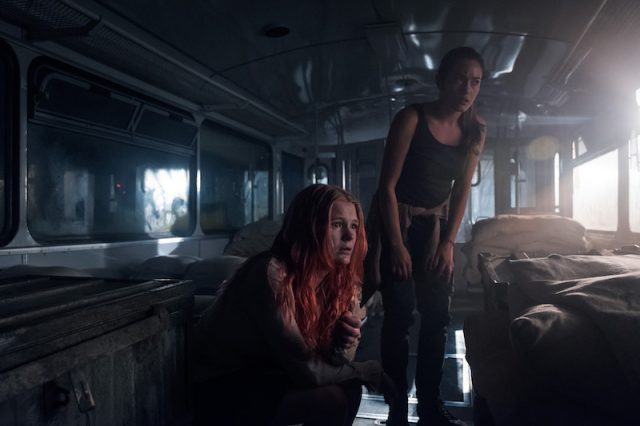
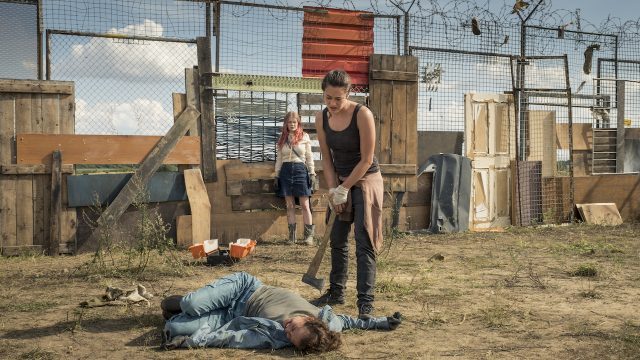
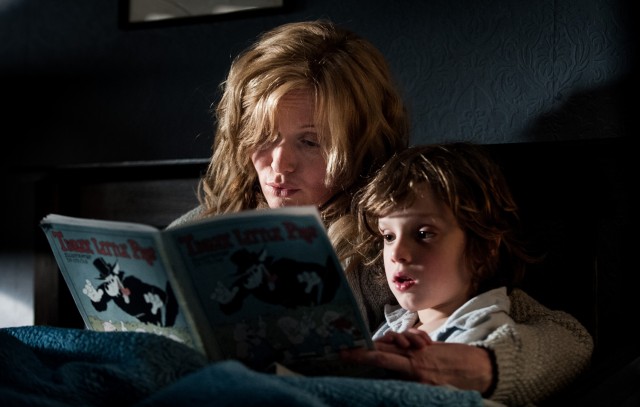
 A sleeper hit at Sundance that enjoyed a hair-raising extended run at IFC Center and was named Best First Film of 2014 by the New York Film Critics Circle, The Babadook is back at IFC as part of the “Waverly Midnights: Parental Guidance” series, screening ten minutes past midnight on Friday and Saturday night. The Babadook is a frightening tale of a mother and her young son — and a suspicious, scary character called the Babadook — trapped in a terrifying situation. Expanded from her 2005 ten-minute short,
A sleeper hit at Sundance that enjoyed a hair-raising extended run at IFC Center and was named Best First Film of 2014 by the New York Film Critics Circle, The Babadook is back at IFC as part of the “Waverly Midnights: Parental Guidance” series, screening ten minutes past midnight on Friday and Saturday night. The Babadook is a frightening tale of a mother and her young son — and a suspicious, scary character called the Babadook — trapped in a terrifying situation. Expanded from her 2005 ten-minute short, 